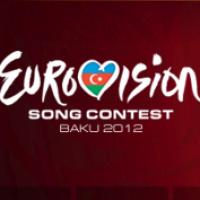Last week during the Eurovision Song Contest Azerbaijan showed to the world its glamorous folklore and modernity, just as Cirttan predicted. The ultramodern Crystal Hall in Baku hosted 26 countries and an audience of 25,000 people. No less than 45,000 lights colored the flags of the different countries.
by Charlie Crooijmans
Before the contest started a different image of Azerbaijan was shown on the news. Thanks to Freemuse and Amnesty we heard about the arrests of journalists, activists and musicians (like Jamal Ali). Panorama on BBC showed the documentary Eurovision’s Dirty Secret about the nepotism and corruption of the presidential family and the poor living conditions of the people whose houses had to be teared down to make place for the Crystal Hall. No country reacted.
In the documentary the European Broadcasting Union (EBU) stated that the contest is not political. One would assume that Azerbaijan would disappear from the news after the contest. This is not the case: according to the news, 40 people were arrested due to a “terror plot”?According to the Azerbaijan authorities a group was plotting ‘terrorist attacks’. The intended targets were the Crystal Hall, police stations, hotels and even president Aliyev himself. The news was deliberately held back to prevent alarm among visitors of Eurovision contest. It is not clear when they were arrested precisely but the Ministry of Security stated that guns and explosions were found. A link to the international attention regarding Muslim terrorism was easily made in the news. There is a supposed link to Dagestan, a mainly Muslim republic in the Russian North Caucasus. Further details, however, are unclear (BBC News).
The news in the aftermath of the Eurovision Songcontest leaves a taste not of a disaster avoided, but of a show of power and strength within Azerbaijan. The president, it says, is in full control. After all, the Eurovision itself showed the president’s wife presiding the organising committee for the contest and the president’s son in law, Emin Agalarov, sang during the intermission. One wonders if such a display would have been accepted if the contest had been held in a democracy.
Next year the contest will be held in Sweden. Hopefully for the EBU there won’t be any awkward political complications. But to be honest, there is always a political undertone. In 2009 Georgia staged an anti-Poetin song. This year, amidst all the controversy, Armenia did not join because it is still at war with Azarbaijan. Is EBU right about keeping a distance from political issues in favour of the cultural celebration that is Eurovision Songfestival, or – as has been implied before – is it sticking its head in the sand? Perhaps putting these issues on the agenda will, at the very least, make the festival a lot more worthwhile for many viewers.
Here is a taste of the Eurovision in Baku and the act of Emin Agalarov during the intermission.

I have nothing to say, because everything has been said. Good show!